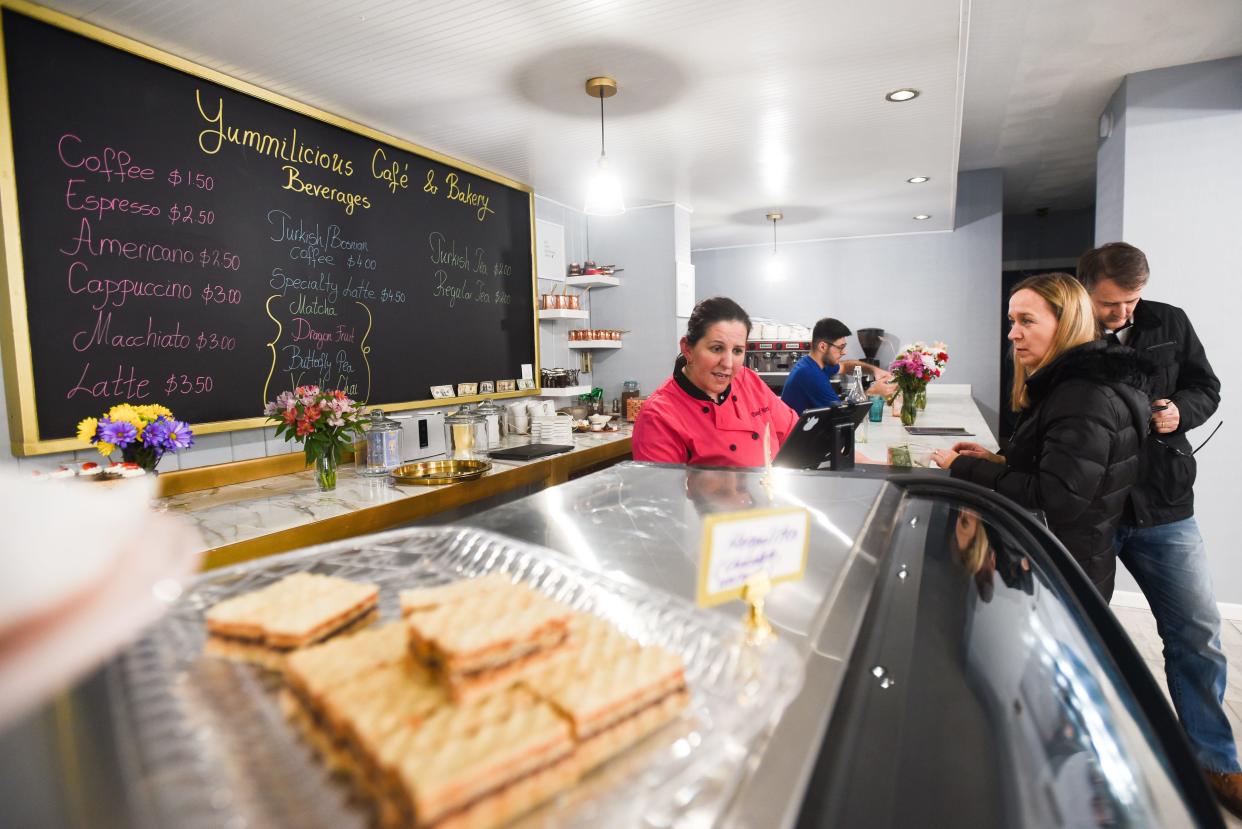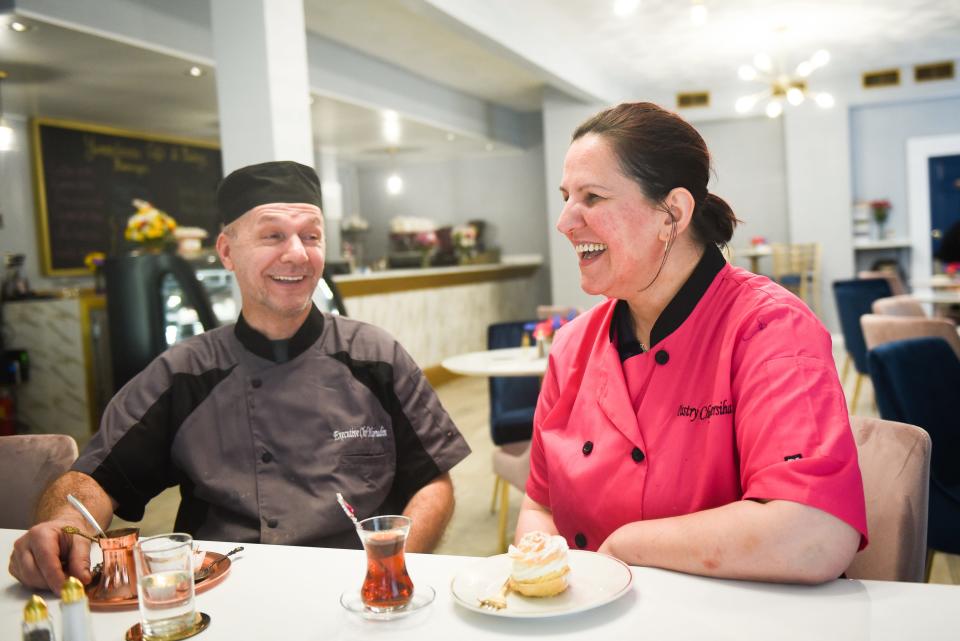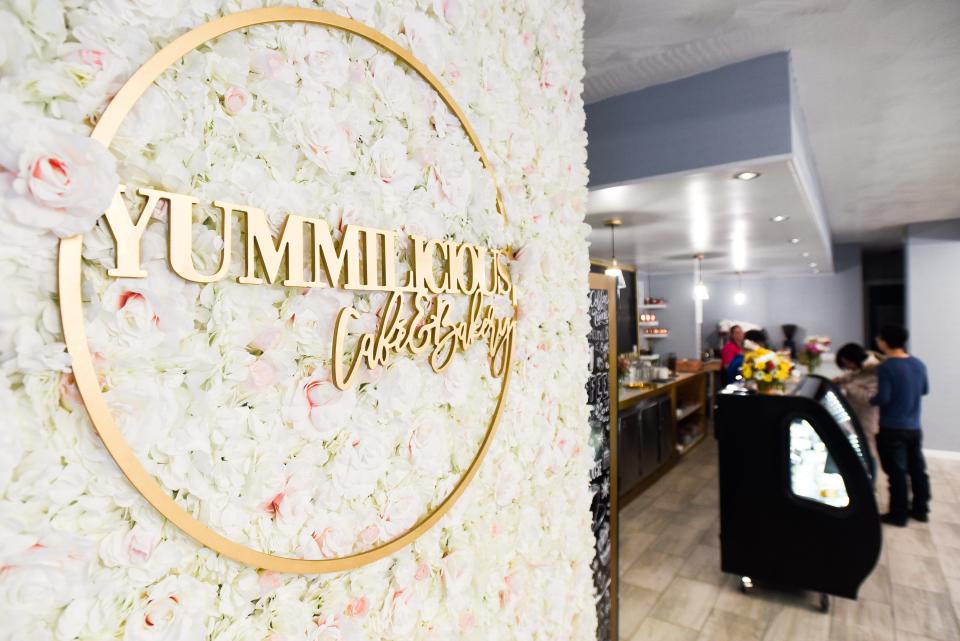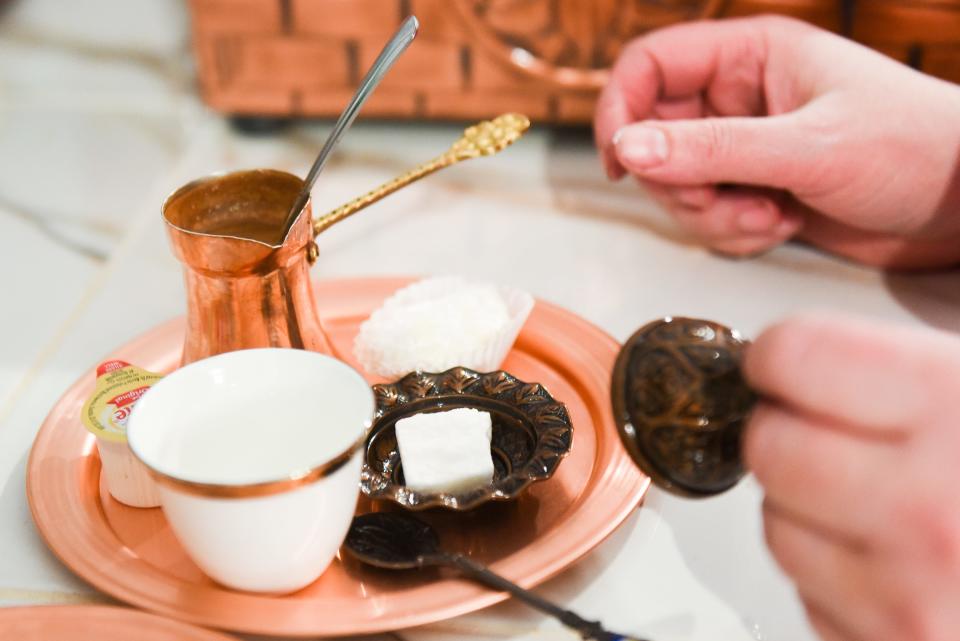‘The town that loves refugees’: Utica’s newcomers bring transformation upstate

More in this series
The revitalization: America’s small cities are reshaped, revitalized by their refugees
Buffalo: After decades of decline, Buffalo touts a 'Refugee Renaissance.' Can it last?
Lancaster: Refugees bring new strokes to Lancaster's Pennsylvania Dutch image
Syracuse: Syracuse refugees' 'desire to succeed' helped the city that supported them
Utica: Utica's newcomers bring transformation to upstate New York
Mersiha Omeragic rests her chin in her hand, eyes welling as she looks around the chic café she has created for her neighbors to share in Utica, New York.
She can’t help but think of that first filthy apartment where her family was placed a quarter century ago when they came here from Bosnia, of the smell of the bleach they used to scour every inch of it. She has come so far since then.
It’s a gray February afternoon in 2020. In a few weeks, new businesses like Omeragic’s café, Yummilicious, along with every other business will be forced to close their doors to avoid spreading a virus the world knows little about. They’ll lose contact with close friends and family.
But for now, inside this space filled with the scents of fresh paint and bold coffee, the world is bright.
Utica has been called "the town that loves refugees” in national news and has resettled close to 17,000 people from more than 40 countries. The upstate New York snowbelt city opened its doors to Amerasian people from Vietnam in the late 1970s; since then, the largest groups have come from the former Soviet Union, the former Yugoslavia and Southeast Asia.
Utica’s refugee program has done more than reclaim part of the population lost when manufacturing left the area in the 1980s. Its diverse population has brought transformation to the small upstate city, while also transforming the newcomers who call it home.

Working to belong
In 1994, Mersiha Omeragic surveyed the apartment built for one and the other refugees who, like her, would spend the next days scrubbing and scavenging to make it something like a place to land. Theirs was a room in a building in a block of industrial properties on Broad Street, just past Route 5S.
Outside, a bitter wind tore through.
Omeragic was 19 years old, and the idyllic peace of her childhood in Bosnia, upended by war in the early ’90s, seemed impossibly far away. She cried every day in the first few years, she remembers, listening to her family’s next-door neighbors shout at them.
“Go back to your country,” she remembers them yelling. “Our soldiers are dying because of you.”
Omeragic’s first job was on a farm where she made $20 a day. Her next was at a curtain shop in Herkimer, making $5.15 an hour.
Kathryn Stam, Ph.D., a professor of anthropology at SUNY Polytechnic Institute and a founder of the Midtown Utica Community Center, says most refugees find themselves working the kinds of jobs other people don’t want when they first arrive. During the pandemic, many of them were essential workers in hospitals, home care, hotels, casinos and in the Chobani yogurt factory, 40 minutes away.
While local programs are now scrambling to resettle an estimated 200 Afghan evacuees by February, Utica still can’t meet its current workforce demand, and these newcomers are important to the city.
'Very much together’
Signs of Utica’s large refugee population are on every street corner: a towering mosque built from a former Methodist church, a packed parking lot outside an Asian noodle restaurant at lunchtime, a Bosnian home with white façade and trim among a cluster of four-square homes. Refugees have revitalized pockets of the city, fixing up properties that were in disrepair.
Utica’s population now stands at just over 65,000 — a far cry from the 1950s, when the city’s population surpassed 100,000. Back then, Italian, Irish and Polish immigrants contributed to the city’s success as a hub in the textile industry. But after decades of declining population, Utica grew from 2000 to 2010, and again from 2010 to 2020.
According to the 2020 U.S. Census, 31% of its residents speak a language other than English at home.
Shelly Callahan, who’s executive director at The Center, Utica’s refugee resettlement organization, says in large urban areas, ethnic groups can live in relative seclusion, without learning English.
But Utica has one public high school. It has one large park where everyone plays soccer. At its lone Walmart Supercenter, shoppers communicate in a variety of languages while perusing the aisles.
“We all live here very much together,” she said.
Dream to reality
For Omeragic, Utica is home, and she’s devoted herself to helping other refugees find success here.
“America gives you opportunity,” she says. “But it’s up to you if you’re going to use it.”
While pregnant with her first child, she finished her associate’s degree. She finished her bachelor’s degree while pregnant with her third, and taught ESL as a mother of four for 12 years, while also designing an ESL hospitality program. Many of her students have never been to school.
“I always tell them ‘Never say no,’ or ‘I can’t,’ or ‘I don’t know.’ Always say ‘Wait. Let me try. Maybe I can.’ And you will see what you’re capable of. You will be surprised and shocked of what you’re capable of doing.”
After five years of saving up the money, Omeragic, who’s been baking family recipes all her life, and her husband bought the building on Rutger Street where they were married 22 years ago and opened a bright, elegant eatery.
With its copper Turkish coffee pots, pink plush chairs and a statement white wall covered in flowers, Yummilicious has been a true labor of love for Omeragic’s family, calling on all their talents in its construction, painting, cleaning and preparing.


Every day they serve her mother’s recipe for apple cake, her husband’s recipe for cevapi sausage and tea for two with the soft, round cookies her grandmother used to make. Coffee is brewed over a traditional heater filled with sand, served in a copper cezve – a long-handled pot – with a small pot of sugar cubes on the side: just like she used to drink it at home.
Since the beginning of the pandemic, many businesses have been forced to close for good. Omeragic’s family moved into the upstairs space above the café. Her Instagram page has gained 15,000 followers. She hasn’t yet made enough money to hire employees outside her family, but they’ve been successful, and are firmly establishing their spot in Utica’s resurgence.
“I know where I come from. I will never forget that. That’s my here,” Omeragic says, putting her fist against her chest. “But this is my home.”
How refugees impact Utica's economy
Paul Hagstrom, an economics professor at Hamilton College in Clinton, New York, analyzed the economic impact of refugees who settled in nearby Utica.
In 2000, he found that the refugees’ first years were costly to the community in terms of education and social programs. But within 13 years, refugees were working in jobs, consuming local goods and participating in the real estate market, therefore paying taxes.
In other words, for the city to see a positive economic impact, the refugees needed to stay in Utica.
In 2017, a team of researchers from Hamilton College visited 597 refugees in their homes to assess their happiness and willingness to remain in Utica.
They found that refugees were generally happy there.
“A lot of their incomes are relatively low and yet they are quite happy with their lives here,” he said. Those with a significant number of friends in the same ethnic group were generally happier.
More than half of Utica’s refugees planned to stay in Utica for life. Those who arrived at an older age, who had been in the U.S. longer and who live in neighborhoods with a higher density of refugees of their ethnic group were all more likely to stay.
But people who arrive younger, as well as children of refugees, were less likely to stick around. They may see greater opportunities outside of Utica, he said, and have the language skills and knowledge to pursue them.
This article originally appeared on Rochester Democrat and Chronicle: Utica's refugees bring transformation to upstate NY
